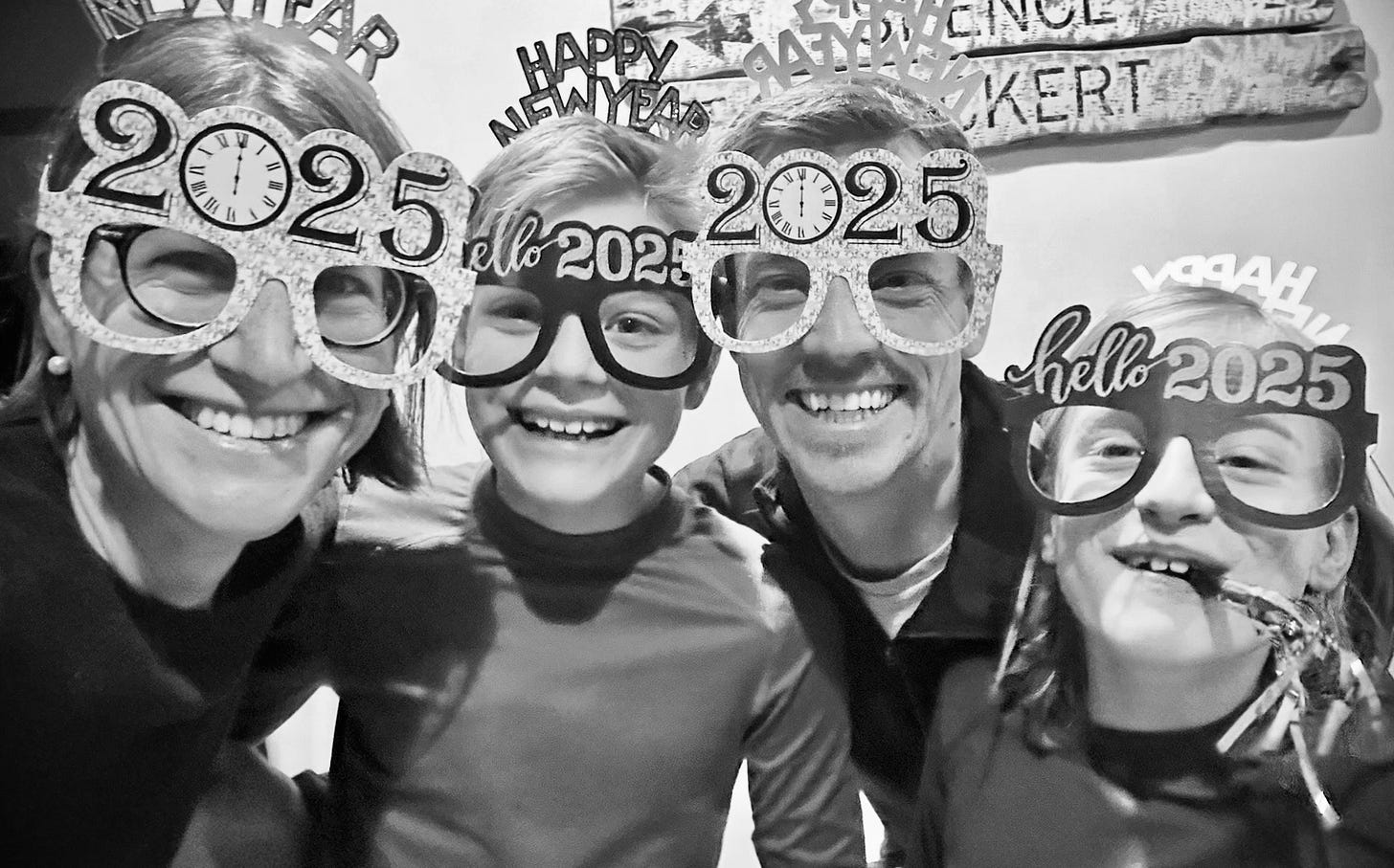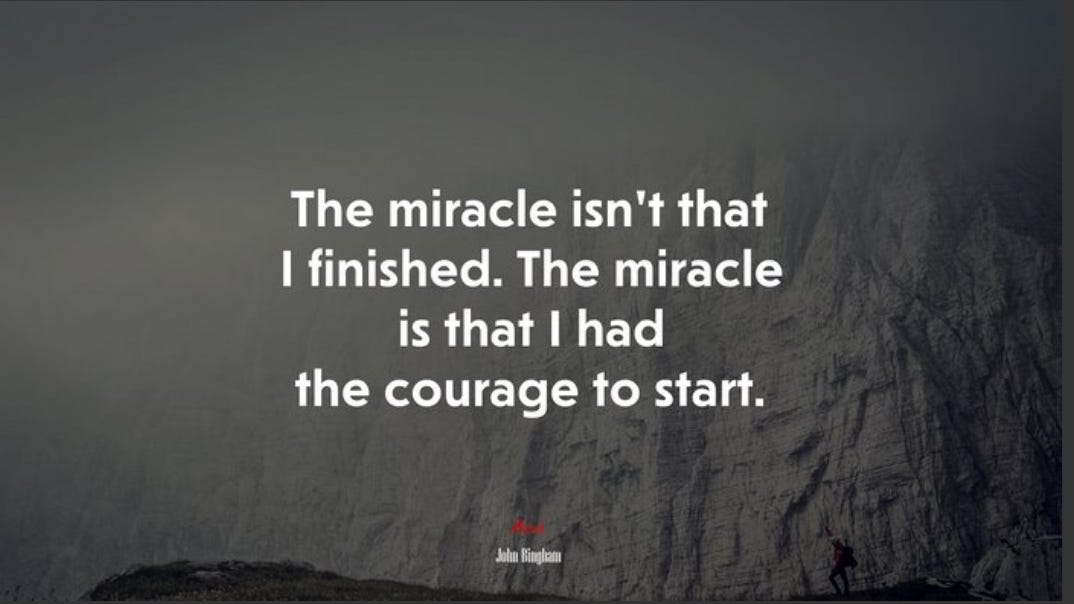We clicked on the New Year's Eve countdown seconds before the Times Square ball dropped. "This is a big year," my 11-year old observed. He was referring to 2025 marking the quarter century of the 2000s, and his comment got me thinking about how we find meaning in the passage of time. Seasons, months, years, centuries - these transitions inspire us to reflect and reset.
And, it is this time of year that we also see countless articles around projections, best-of lists, year-in-reviews, wrapped videos, and summaries of our online reading, browsing, viewing and listening history. Everywhere, we are confronting our past and pondering the future.
Amidst these articles, I see multiple suggestions for how to approach the new year. Make a resolution, or more recently as the term "resolution" has lost favor, set an intention, start the year with a question, or choose a word for the year. As I read, I wonder: aren't all of these approaches encouraging the same thing? Are these words simply semantic differences?
I don't think so.
Here's why...
There is subtlety in language that is vital to how we view ourselves and our place in the world. Each of these ideas on how to start the year with fresh perspective has value, and there is no one best way for everyone to approach it.
My son is a great example.
Just hours before we watched the ball drop, we were enjoying a New Year's Eve dinner with family. After one person shared their resolution, my son shared his. It was honest and vulnerable. As someone who is particularly tough on himself, he commented that in 2025, he wants to treat himself with more compassion. I was quite proud of him for stating his resolution and sharing something so personal in front of his aunt, uncle, grandparents and cousins. I pulled him aside later and asked him what it would look like if he phrased his "resolution" as a question. He didn't hesitate, "How can I find ways to treat myself with more compassion in 2025?" For him, I liked this so much more. He struggles with words like should, and have to and is incredibly demanding of himself. So the thought of a rigid resolution or a firm intention felt too harsh. But a question invited curiosity, it put him in a position of control vs. feeling controlled by an external idea or demand he had set.
I recognize that these differences are subtle, yet it is in this subtlety that we find power. When we begin to understand the subtle nuances that shape our lives, we not only boost our self-awareness, but we are able to more closely align our intentions with our actions. The way we speak to ourselves and the words we use matter.
As we start the new year, many of us are seeking a purposeful way to approach this transition. Instead of feeling that you must choose a word, ask a question, set an intention or make a resolution, consider which of these approaches (or another!) feels right for what you hope to accomplish. I encourage you to match the subtlety of the language with what you hope to achieve.
Here's a framework, featuring popular approaches:
Resolution:
Definition: a firm decision to do or not do something
Implies: rigidity, acknowledgement of a past neglect
Feels: firm, commanding and determined, rooted in the past
Intention:
Definition: a clear aim or plan
Implies: a sense of ownership, clarity and purpose
Feels: positive, hopeful and forward-looking
Question:
Definition: a sentence expressed to elicit information
Implies: curiosity and wonder
Feels: contemplative, thought provoking and empowering
Word of the year:
Definition: a way to focus on a singular idea that could be literal, metaphorical or both
Implies: consistency, overarching theme
Feels: purposeful, all encompassing, thoughtful
For my son, the question approach felt like the best way to pair his desire for more self-compassion with a bit of wonder and empowerment.
For me, I am choosing a word: Courage. I am looking for an annual theme, an approach through which I can funnel thoughts and behaviors. As I reflect on 2024, I feel there was a theme of courage in many of my actions, but I don't know if I approached each of these actions with the intention of being courageous. This year, I want courage to lead me as I put myself out there with my writing, bike riding and new work team. I think of Bryce Courtenay's words from The Power of One:
"Pride is holding your head up when everyone around you has theirs bowed. Courage is what makes you do it."
There are countless ways to approach this 'big year' of 2025. In addition to considering one of the options outlined above, you could set a goal, write a year in preview, or create a mantra.
Whatever you choose, consider matching the language of your approach with what you hope to accomplish. Above all, I wish you health and peace as we mark our passage into the next quarter century.






